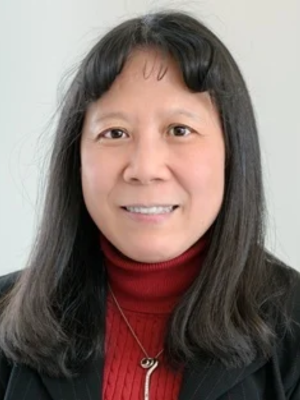The NISS Graduate Student Network is very excited to once again announce our 3rd two-day Graduate Student Network Research Conference!! Last year's conference in 2022 was a resounding success with many fantastic presentations and selecting winners was quite a challenge! This year's conference will be a two-day event and take place on Saturday, May 20 and Sunday, May 21, 2023, from 12pm - 5 pm ET.
The GSN Research Conference will feature graduate student presentations, a Scientific Writing Short Course presented by Don Richards (Department of Statistics at Penn State), and two Invited Talks: Day 1 features Dan Jeske (Department of Statistics at UC Riverside) and Day 2 features Xihong Lin (Harvard University). During the conference, 4 graduate students will be recognized with the best presentation awards based on the content and the quality of their presentation: 1st & 2nd Tier winners will receive $150 USD, and the 3rd Tier presentation winner will be granted $100. The winner for outstanding poster award will be granted $100. The awardees will also receive recognition at the NISS Reception at JSM 2023 at the NISS Reception and Awards Ceremony in Toronto, Canada!
The GSN Graduate Student Research Conference is open to everyone interested!
A special Thank You to this year's sponsor Procter and Gamble (P&G), who is sponsoring this for the 2nd time and is an active NISS Industry Affiliate!
Register on Eventbrite here!
Graduate Student Presentations
Students will present either an oral presentation or a poster presentation at this conference within the following categories:
- Original Research (their own research work),
- Literature Research (presentation of a published paper that is not authored by the presenter), or
- Literature Review (presentation on recent developments in an area -- this would be a chance to present a couple of papers to highlight recent developments in an area of interest.)
Selected oral presentations will involve a 20 minute live presentation including 5 minutes of Q&A.
Submission Deadline Ended May 5th at 5 pm ET
Awards
During this years conference, two types of awards will be granted!
1st, 2nd & 3rd Tier Outstanding Presentation Awards:
- Two graduate students will be recognized with an outstanding presentation award based on the content and the quality of their presentation. The award this year will be $150 granted to 1st & 2nd Tier presentation winner, and 3rd Tier The award this year will be granted $100! The awardees will also receive recognition at the NISS Awards Ceremony at JSM 2023!
Outstanding Poster Award:
- The award this year for the graduate student what has the most outstanding poster will be granted $100! The graduate student will be recognized with an outstanding poster award based on the content and the quality of their poster. The awardee will also receive recognition at the NISS Awards Ceremony at JSM 2023!
Scientific Committee (Conference Judges):
Sumanta Basu (Cornell University)
Sharmista Guha (Texas A&M University)
Brian Habing (USC-Columbia & NISS)
Kevin Lee (Western Michigan University)
Piaomu Liu (Bentley University)
Jim Rosenberger (NISS)
Samuel Y. Wang (Cornell University)
Armine Bagyan (Penn State University)
Keynote Speaker
Saturday, May 20, 2023 at 1:30 pm – 2:30pm ET
 Title: "A Neutral Zone Classifier for Three Classes with an Application to Text Mining"
Title: "A Neutral Zone Classifier for Three Classes with an Application to Text Mining"
Speaker: Daniel. R. Jeske, Professor and Vice Provost, University of California, Riverside
Abstract: A statistical classifier may be limited by its conditional misclassification rates more than the overall misclassification rate. In the case that one or more of the misclassification rates are high, a neutral zone may be introduced to lower, and possibly balance, conditional misclassification rates. A neutral zone is incorporated into a three-class classifier with its region determined by controlling the conditional misclassification rates. The classifier is illustrated with a text mining application whose aim is to classify written comments associated with student evaluations of teaching. Brought into the realm of classifiers for three classes with its size determined by misclassification rates. It is presented with an application to assess the sentiment of student comments written for instructor evaluations. Keywords: Statistical Classification, Neutral Zone, Text Mining, Sentiment AAnalysis, Word2Vec
Short Course
Saturday, May 20, 2023 at 3pm – 5pm ET

Title: Scientific Writing Short Course: "The Difficult Art of Writing Well"
Instructor: Donald Richards, Distinguished Professor Emeritus of Statistics, Penn State University
Abstract: In this short course, I will conduct a discussion of the difficult art of writing well. I will lead the discussion using my experiences as a student, teacher, researcher, colleague, and parent. I will show the participants of the short course that writing well often results in enormous benefits for students, colleagues, family members, and the writer, too. I will offer from my own career several examples of good writing that were highly beneficial for. I will also provide some practical advice, together with a few references to examples of superb writing from which we all can learn.
Keynote Speaker
Sunday, May 21, 2023 at 1:30pm – 2:30pm ET

Title: A Multi-Dimensional Integrative Scoring Framework for Predicting Functional Variants in the Human Genome
Instructor: Xihong Lin, Professor of Statistics, Harvard University
Abstract: Attempts to identify and prioritize functional DNA elements in coding and non-coding regions, particularly through use of in silico functional annotation data, continue to increase in popularity. However, specific functional roles may vary widely from one variant to another, making it challenging to summarize different aspects of variant function with a one-dimensional rating. Here we propose Multi-dimensional Annotation Class Integrative Estimation (MACIE), an unsupervised multivariate mixed model framework capable of integrating annotations of diverse origin to assess multi-dimensional functional roles for both coding and non-coding variants. Unlike existing one-dimensional scoring methods, MACIE views variant functionality as a composite attribute encompassing multiple characteristics, and estimates the joint posterior functional probabilities of each genomic position, a quantity that offers more comprehensive and interpretable information in the presence of multiple aspects of functionality. Applied to a variety of independent coding and non-coding datasets, MACIE demonstrates powerful and robust performance in discriminating between functional and non-functional variants. We also show an application of MACIE to fine-mapping using lipids GWAS summary statistics data from the European Network for Genetic and Genomic Epidemiology Consortium.
Agenda
Tentative Schedule - All times in Eastern Time (ET); Each graduate student presentation will be 20 mins (15 mins presentations + 5 min Q&A)
Day 1: Saturday, May 20, 2023
12:00pm – 12:05pm Welcome & Opening Remarks – Jim Rosenberger (NISS Director) & Matt Barker (P&G)
Session 1: Bayesian Methodologies and Causal Inference
Session Chair: Rebecca Kurtz-Garcia
12:05pm – 12:25pm Zhexiao Lin, UC-Berkeley
12:25pm – 12:45pm Runjia Li, University of Pittsburgh
12:45pm – 1:05pm Durbadal Ghosh, Florida State University
1:05pm – 1:25pm Gehui Zhang, University of Pittsburgh
1:25pm – 1:30pm 5 mins Break
1:30 pm – 2:30pm Keynote speech 1: Dan Jeske, UC Riverside; Chaired by: Piaomu Liu, Bentley
2:30 – 3pm Break
3pm – 5pm Short Course on Scientific Writing
Instructor: Dr. Donald Richards, Penn State; Chaired by: Sharmistha Guha, Texas A&M
Day 2: Sunday, May 21, 2023
Session 2: New Developments in Risk Analysis, Bioinformatics and Biomedical Applications
Session Chair: Manqi Cai, University of Pittsburgh
12:00pm – 12:20pm Surya Teja Eda, University of Connecticut
12:20pm – 12:40pm Dalton Hopper, The Ohio State University
12:40pm – 1:00pm Swathi Venkatesan, University of Connecticut
1:00pm – 1:20pm Pengfei Lyu, Florida State University
1:20pm – 1:30pm 10 min break
1:30pm – 2:30pm Keynote speech 2: Xihong Lin, Harvard University; Chaired by: Sharmistha Guha, Texas A&M
Session 3: High Dimensional Data Analysis and Applications
Session Chair: Hannah Waddel, Emory University
2:30 – 2:50pm Yihong Gu, Princeton University
2:50pm – 3:10 Rashmi Ranjan Bhuyan, University of Southern California
3:10pm – 3:30pm Sara Venkatraman, Cornell University
3:30pm – 3:50pm Andrews Anum, The University of Texas at El Paso
3:50pm – 4:50 pm Poster Session & Networking Social Chaired by Hannah Waddel, Emory and Rebecca Kurtz-Garcia, UC Riverside
Posters:
|
Xiaohuan |
Xue |
Constructing Covariance Functions for Axially Symmetric processes on the Sphere |
|
Duwani |
Katumullage |
Historical information-based specifications for the weight matrix of a CAR model |
|
Youssef |
Fahmy |
Vecchia's Approximation and Optimization for Multivariate Matérn Models |
|
Manqi |
Cai |
MODE: multi-omics cellular deconvolution with single-cell DNA methylation and RNA-seq references |
|
Priyanjali |
Bukke |
A General Framework For Regression With Mismatched Data |
4:50pm – 5:00pm Presentation Award Winner Announcements
Conference Organizing Committee:
|
GSN Committee Members |
GSN Steering Committee Members |
Event Type
- Affiliate Award Fund Eligible
- NISS Hosted
Host
Sponsor
Cost
Website
Location
Policy

